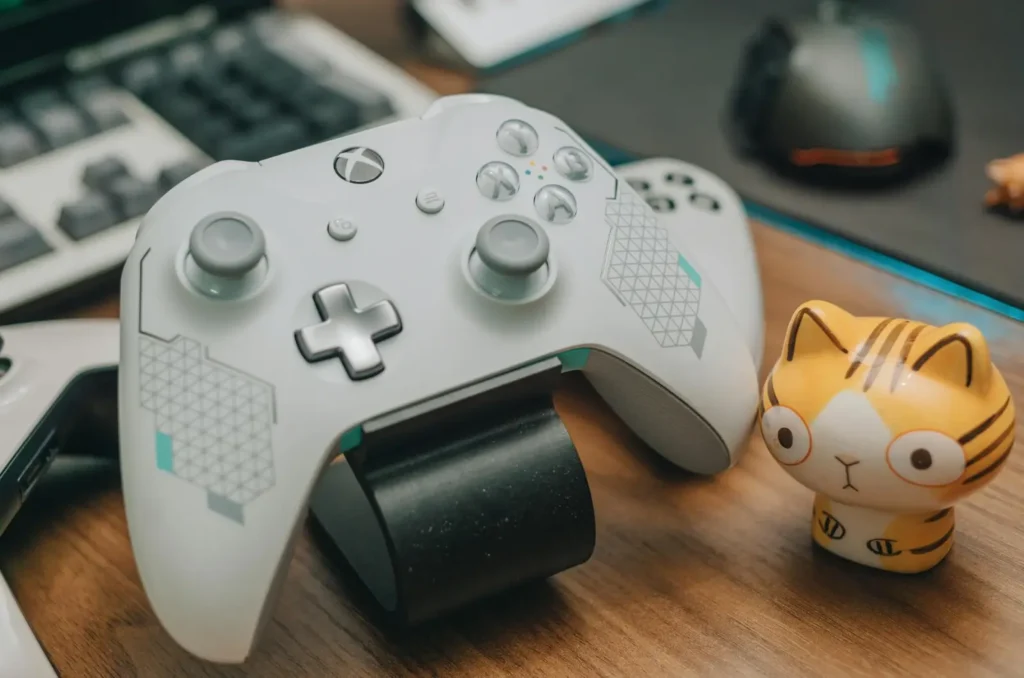The days of PlayStation players being locked away from their Xbox friends are coming to an end. Cross-platform play has torn down the walls between gaming systems, creating a unified multiplayer space that’s reshaping how millions of players connect and compete. This shift isn’t just a technical achievement — it’s transforming the social fabric of gaming communities and influencing how developers approach their games.
The Rise of Cross-Platform Gaming
When Fortnite broke the platform barrier in 2018, it sparked a revolution. Epic Games’ battle royale title proved that cross-platform play wasn’t just possible — it was profitable. The game’s success pushed platform holders like Sony, who had long resisted cross-play, to reconsider their stance.
Today, major titles from Call of Duty to Rocket League let players compete regardless of their chosen hardware. Even many smaller titles and games of luck, about which you can read more here, can be played from different platforms. It’s becoming more and more common to see mobile players in the same game as PC players and Xbox users.
Technical Challenges and Solutions
Making cross-platform play work smoothly isn’t simple. Different systems process inputs differently, handle frame rates uniquely and have varying control schemes. Developers have found creative solutions to these challenges:
- Input-Based Matchmaking: Games like Call of Duty: Modern Warfare II sort players by their input method (controller vs. keyboard/mouse) rather than their platform, creating fairer matches.
- Performance Parity: Developers implement frame rate caps and standardized net code to ensure consistent gameplay across platforms.
- UI Adaptation: Games automatically adjust their interface based on the player’s system, showing PlayStation buttons to PS5 players while Xbox users see their familiar controls.
Business Impact
Cross-platform play has changed gaming economics. Players no longer need to buy the same system as their friends to play together, shifting the focus from platform exclusivity to service quality. This has led to:
- Larger Player Pools: Games maintain healthy populations longer since they can pull from all platforms.
- Reduced Development Costs: Studios can focus on one unified backend instead of platform-specific solutions.
- New Monetization Strategies: Companies emphasize cross-platform progression and purchases, letting players access their content anywhere.
Social Gaming Revolution
The social impact of cross-platform gaming extends beyond convenience. It’s changing how gaming communities form and interact:
- Friend Groups Unite: Players who were once divided by hardware choices can now form mixed-platform gaming groups.
- Competitive Scene Changes: Esports tournaments increasingly feature cross-platform competition, broadening the talent pool.
- Community Integration: Discord and other chat platforms have adapted to support cross-platform coordination.

Developer Perspective
Game creators now approach multiplayer design differently:
- Platform-Agnostic Design: Games are built from the ground up with cross-play in mind.
- Balanced Progression: Systems track achievements and unlock them across all platforms.
- Universal Social Features: Friend lists and party systems work seamlessly across different systems.
Future Trends
Cross-platform play continues to shape gaming’s future:
- Mobile Integration: More games are including mobile players in their cross-platform ecosystems.
- Cloud Gaming Impact: Services like Xbox Cloud Gaming blur platform lines further.
- Industry Standards: Companies are working to standardize cross-platform development tools.
Challenges That Remain
Despite progress, some issues still need attention:
- Cheating Prevention: Different platforms require different anti-cheat solutions.
- Platform-Specific Features: Some console features don’t translate well to other systems.
- Performance Gaps: Hardware differences can still affect the gameplay experience.
What Players Should Know
For gamers looking to make the most of cross-platform play:
- Compatibility: Not all games support full cross-platform features.
- Account Linking: Most games require linking platform accounts to enable cross-play.
- Platform Restrictions: Some features might still be limited on certain systems.
Looking Forward
Cross-platform play represents more than just technical progress — it’s a fundamental shift in how we think about multiplayer gaming. As platform barriers continue to fall, the focus moves toward creating unified gaming experiences that bring players together regardless of their hardware choices.
The gaming industry has learned that players care more about playing with friends than platform loyalty. This understanding drives innovation in cross-platform technology and shapes how future games will be designed and played.
What will the future bring to the gaming industry? We believe cross-platform play will become the standard rather than the exception.
Also Read-Fastwin’s Evolving Game Library: A Gamer’s Paradise
